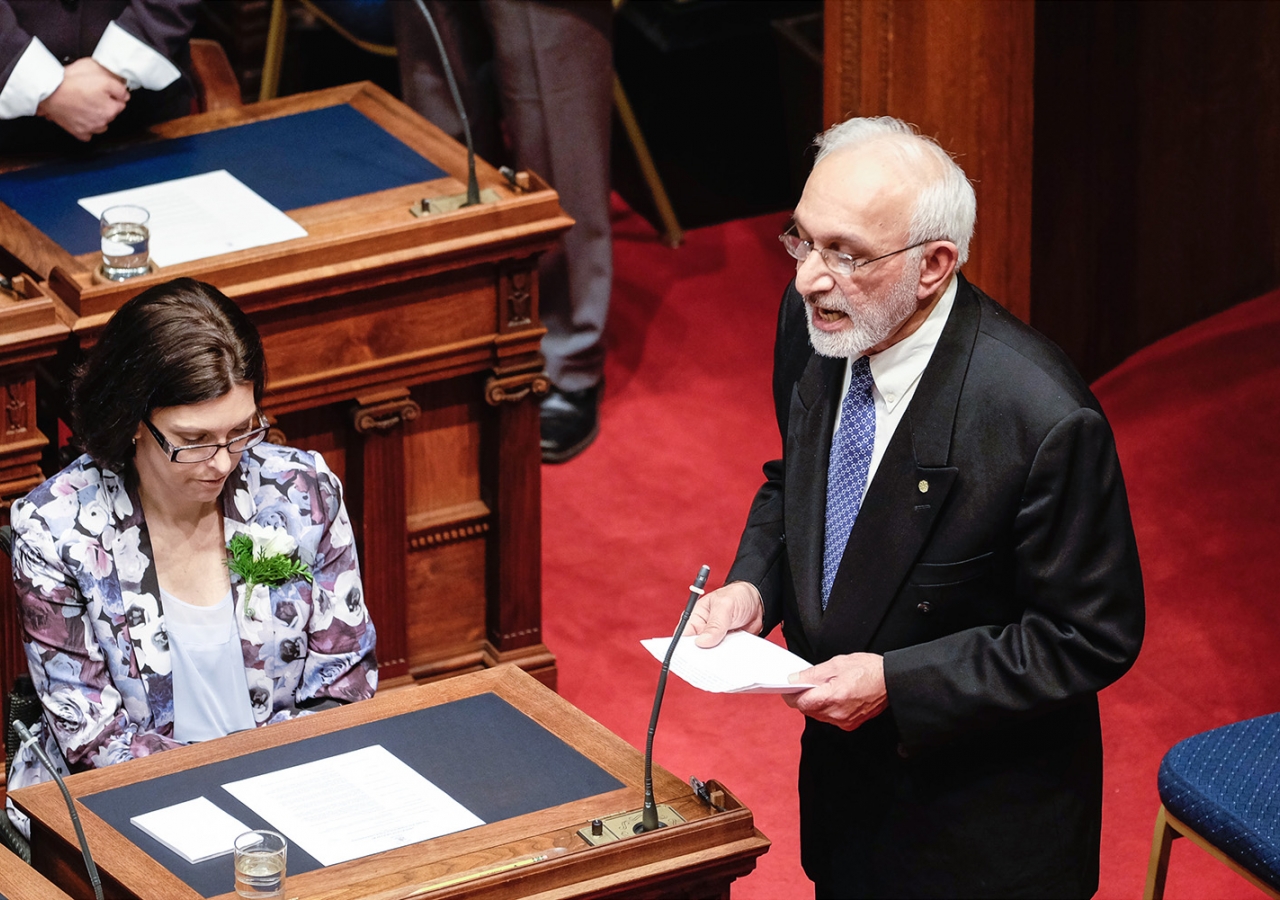The Fourth Session of the 40th Parliament of the Legislative Assembly of British Columbia opened on Tuesday with the recitation of Surah al-Fatiha by Sherali Hussein, an Ismaili Muslim from Vancouver who represented the Canadian province’s Ismaili community.
The Government of British Columbia had had called upon the Ismaili Council for British Columbia to deliver a prayer in the Legislature to mark the start the new parliamentary session. The quranic recitation in Arabic — followed by its English translation — preceded the Throne Speech read by the Honourable Judith Guichon, Lieutenant Governor of British Columbia.
“The Ismaili Muslim community of British Columbia is honoured to lead the prayer in the Legislature prior to the commencement of the Throne Speech,” said Samira Alibhai, President of the Ismaili Council for British Columbia. “We wish all members of the Legislative Assembly much success as they perform their public service duties, and thank them for their service to British Columbia.”
Below is the preamble to the prayer that was recited in the Legislature.
It is a distinct honour and privilege to lead the Legislative Assembly of the province of British Columbia in prayer today, prior to the throne speech.
Today's selection consists of recitation of a passage from the Noble Qur'an. Known as al-Fatiha or “The Opening”, it is the first chapter of the Muslim scripture. This short chapter, consisting of seven verses, is considered the quintessence of the Holy Qur'an. It is a prerequisite feature of every formal Muslim prayer and is often recited prior to the commencement of a journey or at the beginning of important tasks or events to invoke the Lord's blessings.
As you embark on your trusted and solemn public service duties, it seems fitting to commence with a verse which invokes an ethos and universal themes of humility before one's Creator and seeking of his ever-present grace, mercy and protection, as well as assistance for wisdom and guidance by which to lead dignified and ethical lives.
We shall now recite the Sura al-Fatiha, followed by its English translation.








